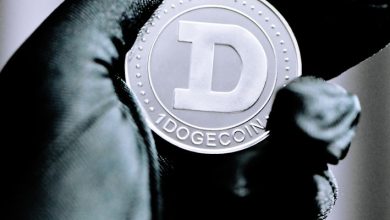How DeFi Is Changing the Landscape of Asset Management

- Understanding the basics of DeFi and its impact on asset management
- Exploring the decentralized finance ecosystem and its potential for disruption
- The rise of DeFi platforms and their role in reshaping traditional asset management
- Challenges and opportunities in leveraging DeFi for asset management strategies
- Key considerations for investors looking to incorporate DeFi into their asset management approach
- Regulatory hurdles and the future outlook for DeFi in asset management
Understanding the basics of DeFi and its impact on asset management
Decentralized Finance (DeFi) has been making waves in the world of asset management, offering a new way for individuals to manage their assets without relying on traditional financial institutions. Understanding the basics of DeFi is crucial for anyone looking to explore this innovative approach to asset management.
DeFi operates on blockchain technology, which allows for the creation of decentralized applications (dApps) that can facilitate various financial services. These services include lending, borrowing, trading, and investing, all without the need for intermediaries like banks or brokers.
One of the key features of DeFi is the use of smart contracts, self-executing contracts with the terms of the agreement between buyer and seller directly written into lines of code. This automation eliminates the need for a trusted third party and ensures that transactions are executed as agreed upon.
DeFi’s impact on asset management is significant, as it provides individuals with greater control over their assets and investments. By removing intermediaries, DeFi allows for greater transparency, lower fees, and increased accessibility to financial services.
As DeFi continues to evolve and gain popularity, it is important for asset managers to stay informed about this rapidly changing landscape. By understanding the basics of DeFi and its impact on asset management, individuals can take advantage of this innovative technology to optimize their financial strategies.
Exploring the decentralized finance ecosystem and its potential for disruption
Exploring the decentralized finance (DeFi) ecosystem reveals a rapidly evolving landscape with the potential to disrupt traditional asset management practices. DeFi platforms leverage blockchain technology to create a permissionless and transparent financial system that operates without intermediaries.
One key aspect of DeFi is the concept of smart contracts, which are self-executing contracts with the terms of the agreement directly written into code. These contracts automatically enforce transactions when specific conditions are met, eliminating the need for intermediaries and reducing the associated costs.
DeFi also offers a wide range of financial services, including lending, borrowing, trading, and asset management, all accessible through decentralized applications (dApps). Users can interact with these dApps directly from their digital wallets, enabling greater control over their assets.
Furthermore, DeFi platforms are open to anyone with an internet connection, providing financial services to individuals who may be excluded from traditional banking systems. This inclusivity has the potential to democratize access to financial products and services, enabling greater financial independence.
Overall, the decentralized finance ecosystem is poised to revolutionize asset management by offering innovative solutions that are more efficient, cost-effective, and accessible than traditional financial systems. As DeFi continues to mature and gain widespread adoption, its disruptive potential in the asset management industry becomes increasingly evident.
The rise of DeFi platforms and their role in reshaping traditional asset management
DeFi platforms have been on the rise in recent years, offering a new way for individuals to manage their assets outside of traditional financial institutions. These platforms utilize blockchain technology to enable users to access a wide range of financial services, such as borrowing, lending, and trading, without the need for intermediaries.
One of the key roles that DeFi platforms play in reshaping traditional asset management is their ability to provide users with greater control over their investments. By using smart contracts and decentralized protocols, individuals can directly interact with the platform and execute transactions without relying on a central authority.
Furthermore, DeFi platforms offer a high level of transparency, as all transactions are recorded on the blockchain and can be easily verified by users. This transparency helps to build trust among participants and reduces the risk of fraud or manipulation.
Another important aspect of DeFi platforms is their inclusivity, as they allow anyone with an internet connection to participate in the global financial system. This opens up new opportunities for individuals who may not have had access to traditional asset management services in the past.
Overall, the rise of DeFi platforms is revolutionizing the way assets are managed and traded, providing individuals with greater control, transparency, and inclusivity in the financial markets. As these platforms continue to evolve and gain mainstream adoption, they have the potential to significantly impact the traditional asset management industry.
Challenges and opportunities in leveraging DeFi for asset management strategies
Exploring the challenges and opportunities in leveraging DeFi for asset management strategies can provide valuable insights into the evolving landscape of finance. DeFi, short for decentralized finance, offers a decentralized and permissionless platform for managing assets, providing new possibilities for investors and fund managers. However, this innovative approach also comes with its own set of challenges that need to be addressed in order to fully capitalize on its potential.
- Challenges:
- Regulatory Uncertainty: The regulatory environment surrounding DeFi is still evolving, creating uncertainty for asset managers looking to incorporate these technologies into their strategies.
- Smart Contract Risks: DeFi platforms rely on smart contracts, which are vulnerable to bugs and security breaches, posing risks to assets under management.
- Liquidity Issues: DeFi markets can be illiquid, leading to potential challenges in executing trades at desired prices.
- Opportunities:
- Efficiency Gains: DeFi can streamline asset management processes, reducing costs and improving operational efficiency.
- Access to Diverse Assets: DeFi opens up access to a wide range of assets traditionally unavailable to retail investors, offering new opportunities for diversification.
- Automation and Programmability: DeFi enables automation of asset management tasks and programmable strategies, enhancing flexibility and scalability.
By carefully navigating these challenges and seizing the opportunities presented by DeFi, asset managers can stay ahead of the curve in the rapidly evolving landscape of finance. Embracing innovation and adapting to the changing environment can position asset managers for long-term success in the digital age.
Key considerations for investors looking to incorporate DeFi into their asset management approach
When considering incorporating DeFi into your asset management approach as an investor, there are several key factors to keep in mind:
- Understand the risks involved in DeFi investments and only allocate a portion of your portfolio accordingly.
- Research different DeFi projects thoroughly to assess their credibility, security, and potential returns.
- Stay updated on the latest trends and developments in the DeFi space to make informed investment decisions.
- Diversify your DeFi investments across various projects to mitigate risk and maximize potential gains.
- Consider working with a financial advisor or DeFi expert to navigate the complexities of this emerging market.
By carefully considering these factors and staying informed about the DeFi landscape, investors can effectively incorporate decentralized finance into their asset management strategy for potentially lucrative returns.
Regulatory hurdles and the future outlook for DeFi in asset management
Currently, one of the main challenges facing DeFi in asset management is navigating regulatory hurdles. As decentralized finance continues to gain traction, regulators around the world are scrambling to catch up and establish guidelines for this rapidly evolving industry. The lack of clear regulations can create uncertainty for investors and inhibit the growth of DeFi platforms in asset management.
Despite these challenges, the future outlook for DeFi in asset management remains promising. Many industry experts believe that regulatory clarity will eventually be achieved, paving the way for wider adoption of decentralized finance in traditional asset management. As DeFi projects continue to innovate and address regulatory concerns, we can expect to see more institutional investors entering the space and driving further growth.



